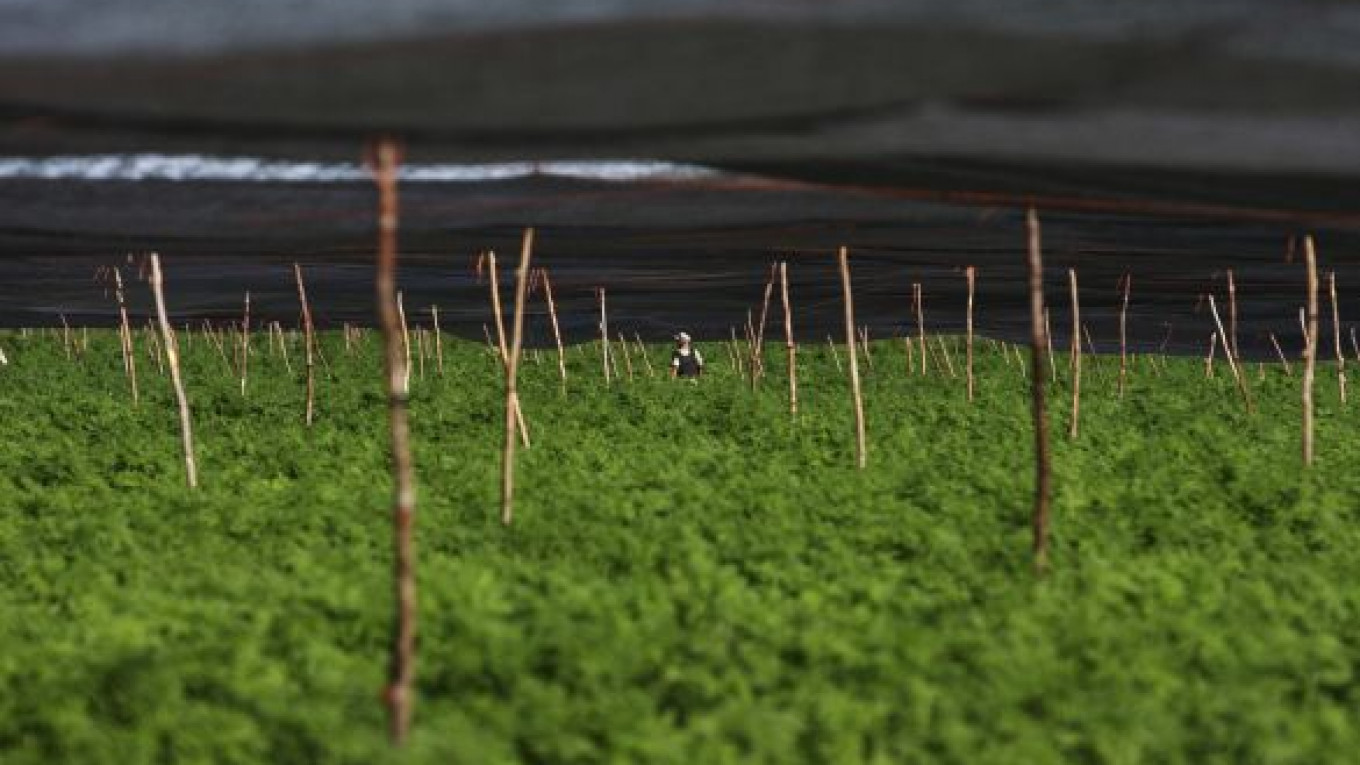The country's top anti-drug official said Wednesday that a good way to boost the agricultural sector would be to cultivate plantations of the "strategic resource" cannabis.
Viktor Ivanov, head of the Federal Anti-Drug Service, proposed the mass-planting of drug-free cannabis across Russia at a meeting of the State Anti-Drug Committee in remarks that were quickly backed by health officials but greeted with skepticism by industry insiders.
Ivanov said at least three Russian research institutes have cultivated 20 subspecies of "harmless," drug-free cannabis that could become the essential raw material used for seed oil, livestock feed, pulp for paper production and other products as in years past.
"I think it could become an important innovative project," Ivanov said in a separate interview with Rossiiskaya Gazeta published Wednesday.
He said cannabis could be used to make as many as 25,000 items and reach an annual turnover of more than 100 billion rubles ($3.1 billion), providing 1 million jobs.
In addition, he said, the drug-free species would be able to force out potent cannabis plants covering about 1 million of hectares of the country.
The project has the backing of the Economic Development and Agriculture ministries, Rossiiskaya Gazeta said.
Gennady Onishchenko, head of the Federal Consumer Protection Service, said Wednesday that he had no objections about Ivanov's initiative.
"Maybe, there is a certain sense" in cultivating drug-free cannabis to replace wild-growing plantations, he said, Interfax reported.
But Russia's top narcologist with the Health and Social Development Ministry, Yevgeny Bryun, said even harmless species contain traces of tetrahydrocannabinol, the substance that causes marijuana's exhilarating effect.
"I personally don't know any cannabis without cannabinoids," Bryun said, Interfax reported.
In fact, Ivanov's idea is not terribly innovative because cannabis was widely grown in Russia for centuries, and the Soviet Union was growing cannabis, mostly for hemp and oil, on 680,000 hectares of land in 1936, according to the Big Soviet Encyclopedia. But production largely stopped after most cannabis species were blacklisted in the early 1960s during a United Nations anti-drug campaign.
A spokesman for the Agro-Zrk company, which produces fish feed made of cannabis seeds, expressed skepticism about reviving the industry.
"It has been ruined for so long that the whole industry needs to be restored, which might require 15 years," the spokesman said by telephone.
Ivanov did not give a time estimate but said the initiative would cost the state about 10 billion rubles ($313 million).
The Soviet Union had about 130 factories producing hemp. Now there are only a few companies that produce hemp rope and cloth.
It is very hard to sell hemp-based products because of "ill PR," the Agro-Zrk spokesman complained.
Maxim Klyagin, a Finam agriculture analyst, said the industry has been abandoned for dozens of years and now "it will be very hard to resume its potential."
It was also unclear why drug tsar Ivanov has focused on developing agriculture and the economy.
Meanwhile, Prime Minister Vladimir Putin criticized Ivanov's agency Wednesday.
The service, "which I created with over 30,000 staff employees, has worked ineffectively so far," Putin said while meeting a group of celebrity Russian writers.
Staff writer Alexander Bratersky contributed to this report.
A Message from The Moscow Times:
Dear readers,
We are facing unprecedented challenges. Russia's Prosecutor General's Office has designated The Moscow Times as an "undesirable" organization, criminalizing our work and putting our staff at risk of prosecution. This follows our earlier unjust labeling as a "foreign agent."
These actions are direct attempts to silence independent journalism in Russia. The authorities claim our work "discredits the decisions of the Russian leadership." We see things differently: we strive to provide accurate, unbiased reporting on Russia.
We, the journalists of The Moscow Times, refuse to be silenced. But to continue our work, we need your help.
Your support, no matter how small, makes a world of difference. If you can, please support us monthly starting from just $2. It's quick to set up, and every contribution makes a significant impact.
By supporting The Moscow Times, you're defending open, independent journalism in the face of repression. Thank you for standing with us.
Remind me later.






